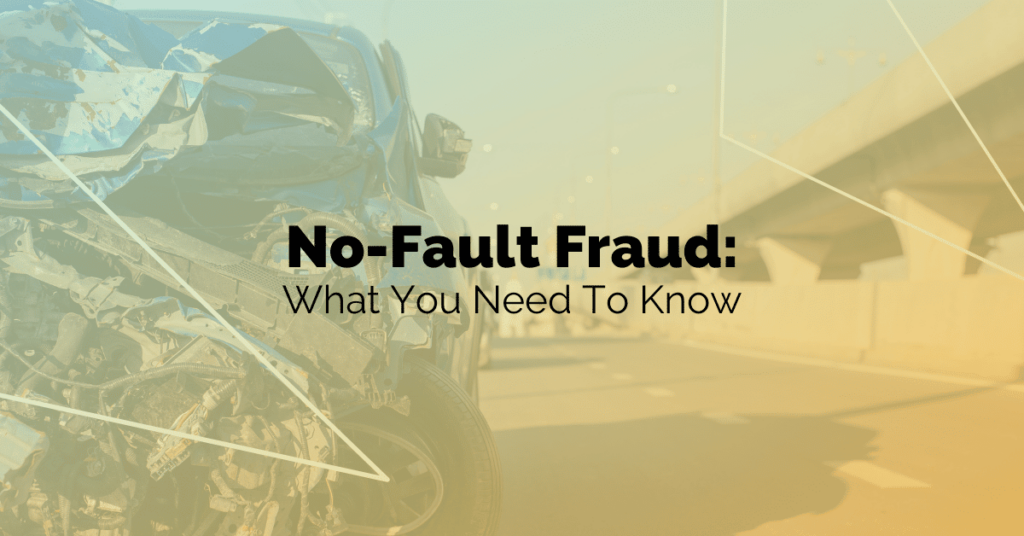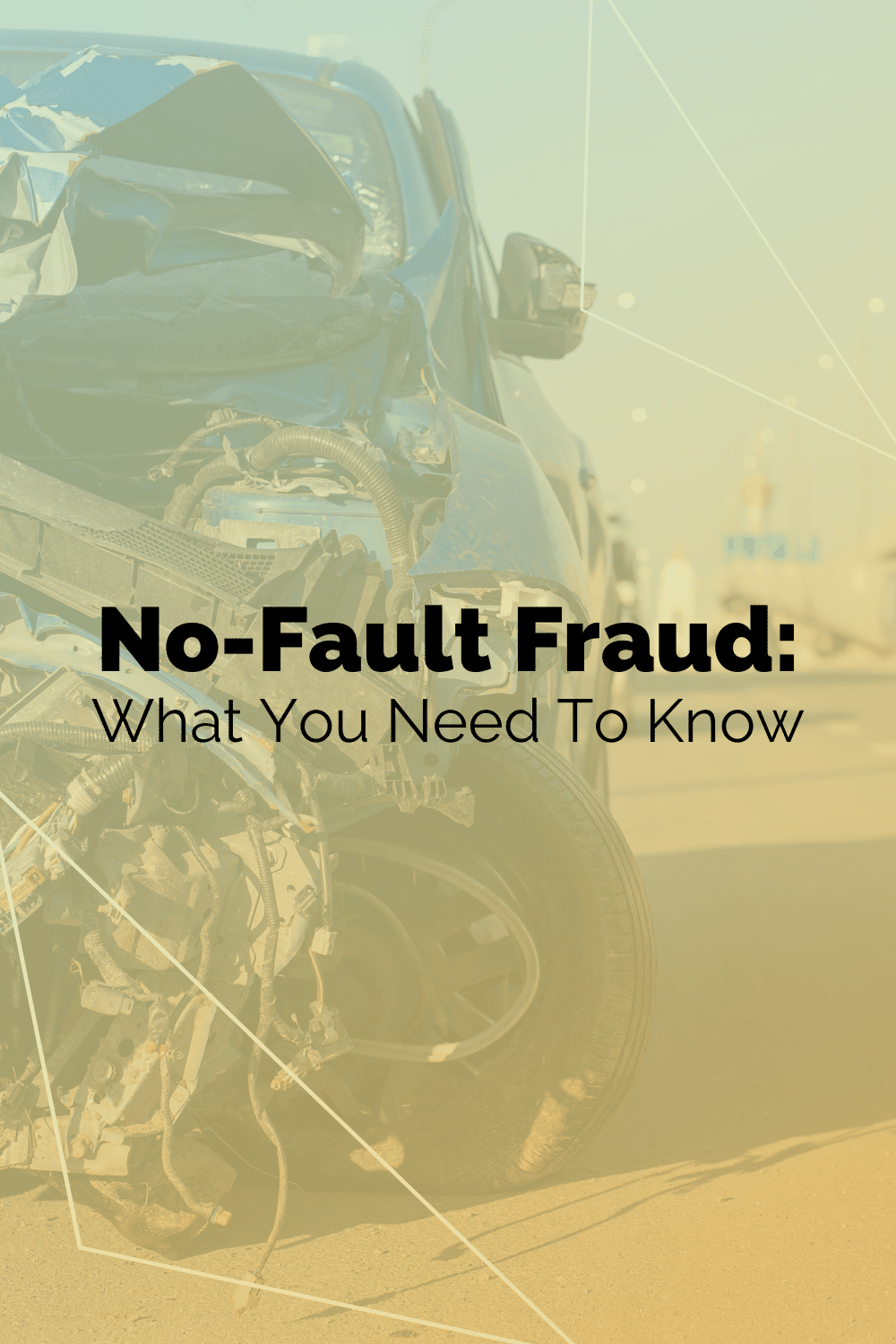
No longer can auto insurance companies use overly broad No-Fault fraud clauses in their policies to take away all of your legally-guaranteed Michigan auto insurance benefits after a car accident just by claiming you’ve made a mistake in your claims forms, an inaccurate statement in the past, or because of what a some private eye they hired claims they saw you do.
A recent Michigan Court of Appeals ruling – which applied a landmark decision by the Michigan Supreme Court from 2020 – has put an end to this. Until now, insurance companies have been exploiting overly broad anti-fraud provisions in policies to deny an ever escalating number of claims for years.
The one-two punch of these significant No-Fault fraud rulings now sends a clear message to the auto insurance companies, claims adjusters and insurance defense lawyers that car accident victims’ rights cannot be trampled on and taken away at essentially the whim of the insurance company by claiming whatever they want as fraudulent.
The justices on the Supreme Court and the judges on the Court of Appeals have now stopped a practice that has caused real harm to hundreds, even thousands, of completely innocent and injured car accident victims. Of course, these two rulings just clarify what should have been clear to the insurance companies all along.
Using No-Fault fraud clauses to strip away all of a car accident victim’s benefits based on their statements or actions after the car crash has no legal basis in Michigan law. The No-Fault law, passed by the Legislature in 1973 and amended in 2019, does not allow it. And the Michigan common-law, which has existed for decades and decades, also does not allow it.
Accusing car accident victims of fraudulent behavior
Auto insurance companies have been using No-Fault fraud provisions in their policies to exploit car accident victims’ mistakes – no matter how innocent or how inconsequential – during the claims process or during legal discovery to take away all Michigan auto insurance benefits, saving insurance companies millions of dollars. And until now, they’ve been largely getting away with it.
The defense playbook is simple: What the adjusters or defense lawyers do is comb through all of the forms submitted by a car accident victim. They flyspeck every line. They do the same with depositions and interrogatories. They hire private investigators. The goal of all of this is to find a mistake, some inaccurate statement – no matter how small, innocent, or insignificant it is – and then use this to accuse the car accident victim of having committed fraudulent acts.
Accusing the car accident of fraudulent behavior holds particular significance because then the auto insurance company can then avail itself of the overly broad and draconian “anti fraud” provisions its own lawyers had drafted. Using this definition of fraud, the insurer would then seek to “void” the entire policy and walk away from all legal and financial responsibility for the victims’ Michigan auto insurance benefits.
Draw the wrong trial court judge, as hundreds of people did, and the insurance companies would get away with it, too.
The effect of this strategy of auto insurance companies using No-Fault fraud against their own insureds and the people who are supposed to be actually protecting has been devastating. Thousands of Michigan car accident victims have had their Michigan auto insurance benefits denied in recent years as insurance companies became more aggressive and more emboldened to claim nearly anything as fraud.
What started the No-Fault fraud mess
Auto insurance companies’ exploitation of No-Fault fraud clauses started with a ruling from the Michigan Court of Appeals in 2014.
The case was Bahri v. IDS Property Casualty Insurance Company and it involved the court condoning the auto insurance company’s use of its own “fraud exclusion” to cut off all of its insured’s Michigan auto insurance benefits based on mistakes in her Household Services Statements and conclusions that the insurance company reached from surveillance footage it took of its insured.
This decision was horrible. It was poorly written and poorly thought-out. It predictably started a tidal wave of misuse and abuse by auto insurance companies as they claimed nearly any mistake was a fraudulent act. It also overwhelmed many completely innocent car accident victims.
As a No-Fault lawyer, I have been an outspoken critic of the Bahri opinion, which is one of the worst legal opinions I have ever encountered. I have seen insurance defense lawyers and claims adjusters rely on this case to allege fraudulent behavior over every innocent mistake or inconsistency in record-keeping – no matter how slight or inconsequential.
I have watched over the past years as insurance companies who are legally responsible under the Michigan auto insurance law for paying personal injury protection (PIP) benefits have completely abused and avoided these legal obligations just by calling innocent people frauds. Insurance companies have used the Bahri decision to deny present and future auto insurance benefits to hundreds of seriously injured car crash victims. Claims adjusters and insurers could use any pretext to allege No-Fault fraud so they could then deny PIP benefits to people who desperately need them.
Thankfully, these recent rulings by the Michigan Supreme Court and the Michigan Court of Appeals will bring a long overdue end to this mess.
Courts stop abuse of No-Fault fraud provisions in auto insurance contracts
The two new cases that will now protect car accident victims from having their Michigan auto insurance benefits completely terminated because of an accusation of No-Fault fraud come from the Michigan Supreme Court and the Michigan Court of Appeals.
In MEEMIC v. Fortson, the Michigan Supreme Court ruled that MEEMIC’s antifraud provision which sought to void the entire policy based on alleged fraud concerning a car accident victim’s attendant care benefits was invalid and unenforceable because it has no legal basis in either Michigan’s auto insurance law nor Michigan’s longstanding common-law.
In Williams v. Farm Bureau, the Michigan Court of Appeals relied on MEEMIC v. Fortson to rule that Farm Bureau’s antifraud provision which sought to void the entire policy based on its insured’s alleged false statements related to her No-Fault claim after her car accident was invalid and unenforceable. The Court of Appeals explained that MEEMIC “held that antifraud provisions in Michigan auto insurance policies apply to fraudulence in the inducement but not to allegations of postprocurement fraud. Accordingly, the policy provision on which defendant and the trial court relied is ‘invalid and unenforceable’ to the degree a insurer seeks to apply it to allegations of postprocurement fraudulent in a claim under a mandatory coverage, as in this case.”
Examples of No-Fault fraud provisions
Here are examples of the types of No-Fault fraud provisions that auto insurance companies put in their policies to use against their insureds after they have been injured in a car accident:
- “We do not provide coverage for any insured who has made fraudulent statements or engaged in fraudulent conduct in connection with any accident or loss for which coverage is sought under this policy.” (IDS Property Casualty Insurance Company)
- “This entire policy is void if any insured person has intentionally concealed or misrepresented any material fact or circumstance relating to: A. This insurance; B. The Application for it; C. Or any claim made under it.” (MEEMIC)
- “The entire policy will be void if whether before or after a loss, you, any family member, or any insured under this policy has: 1. Intentionally concealed or misrepresented any material fact or circumstances; 2. engaged in fraudulent conduct; or 3. made false statements; relating to this insurance or to a loss to which this insurance applies.” (Farm Bureau)
Need help? Call the attorneys at Michigan Auto Law
If you have been injured in a car accident or if you have been wrongly accused of No-Fault fraud and would like to speak with an experienced insurance lawyer, call toll free anytime 24/7 at (800) 968-1001 for a free consultation with one of our attorneys. You can also get help from an experienced accident attorney by visiting our contact page or you can use the chat feature on our website.



